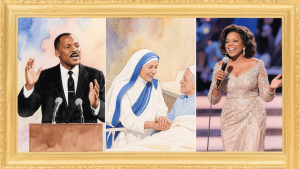ENTP Debater: The Intellectual Maverick Redefining Innovation
Driven by insatiable curiosity, they are debate virtuosos who challenge the status quo with disruptive thinking, viewing the world as a playground of infinite possibilities.

Among the constellations of personality psychology, the ENTP (Extraverted, Intuitive, Thinking, Perceiving) stands out as one of the most innovative and charismatic debaters. Known as the “Visionary” or the “Inventor,” they constitute approximately 3% of the population. If you know someone who constantly throws out bold ideas, excels at uncovering truth through debate, and scorns routine, you likely know an ENTP. Let’s delve deeper into this dynamic and challenging personality type.
1. ENTP Meaning: Decoding the Core Drive Behind the Letters
ENTP is one of the sixteen personality types defined by the Myers-Briggs Type Indicator (MBTI®), characterized by four core dimensions:
E – Extraverted: Primary energy comes from interacting with the external world. ENTPs thrive on exchanging ideas, brainstorming, and are often lively and infectious in social settings. N – Intuitive: Focuses on possibilities, patterns, abstract concepts, and future visions far more than concrete details or immediate reality. They excel at seeing connections and underlying meanings. T – Thinking: Makes decisions primarily based on logic, objective analysis, and cause-and-effect reasoning. They seek truth and effectiveness, sometimes appearing rational to the point of critique. P – Perceiving: Prefers to stay open, flexible, and adaptable. They enjoy exploring possibilities, dislike settling on conclusions too early or being bound by rigid plans, and revel in the spontaneity of the process.
Core Drive: To understand, improve, and innovate systems (whether theoretical, technological, or social structures). The ENTP’s genius lies in spotting flaws in existing models and envisioning novel, often more efficient alternatives. They relish the intellectual challenge and the process of mental sparring itself.
2. ENTP Characters: The Charismatic Thought Explorer
ENTPs possess distinct and captivating character traits:
Quick-Witted & Divergent Thinkers: Their minds operate at high speed, effortlessly leaping between concepts to generate a multitude of (sometimes wild) ideas. They are true “idea generators.” Born Debaters & Challengers: Passionate about delving into viewpoints and skilled at spotting logical flaws. They often play “devil’s advocate” to test an idea’s viability, even if they agree with it. For them, debate is a tool for understanding the world and sparking inspiration. Charming & Enthusiastic: ENTPs are typically articulate, witty, energetic, and easily draw others into their intellectual adventures. They radiate enthusiasm for subjects that intrigue them. Innovators & Agents of Change: Perpetually dissatisfied with the status quo, they constantly seek ways to improve, optimize, or revolutionize. They are pioneers who break the mold. Seekers of Knowledge & Possibility: Possess an insatiable curiosity, craving to understand complex concepts and explore diverse possibilities. Learning new things excites them. Flexible & Adaptable: Dislike being confined by rigid plans or structures. They relish improvisation and excel at adjusting strategies based on new information and circumstances. Potential Weaknesses: Can be impatient with deep execution and detail-oriented tasks; prone to boredom, especially with routine; may prioritize logic over others’ feelings at times; notorious procrastinators (new ideas are more enticing).
3. ENTP Celebrities: Visionary Minds Shaping History and Reality
The ENTP’s innovative spirit and disruptive thinking have birthed world-changing figures across diverse fields:
Thomas Edison: Holding over 1,000 patents, this “Wizard of Menlo Park” exemplifies the ENTP blend of innovation and pragmatism. His relentless experimentation and commercialization acumen transformed systems like electric lighting and sound recording. Nikola Tesla: Another genius inventor and futurist. Tesla possessed astounding imagination, conceiving revolutionary technologies like the AC electrical system and radio communication fundamentals. His obsession with abstract concepts and future possibilities embodies the ENTP’s Intuitive (N) core. Richard Feynman: Nobel Prize-winning physicist. Renowned for his extraordinary intellect, profound yet intuitive grasp of physics, and charismatic (even playful) teaching style. He thrived on exploring the unknown, explaining complex ideas (Thinking – T), and challenging authority. Steve Jobs: Co-founder of Apple Inc. Jobs was defined by his visionary outlook (N), industry-disrupting innovation, powerful “reality distortion field” (charisma – E), and relentless logical pursuit of product perfection (T), profoundly altering technology and lifestyles. Mark Twain: Foundational figure in American literary realism. His keen observation, biting satirical wit, deep insight into social phenomena (N+T), and free-spirited nature (P) perfectly capture the ENTP’s critical spirit and charm. Elon Musk: Founder of Tesla, SpaceX, etc. Musk embodies the modern ENTP with his grand visions (N), audacity in challenging aerospace and automotive industries, rapid-fire thinking and debating skills (E+T), and adaptability under pressure (P).
4. ENTP Personality: Deep Dive into Motivation and Challenges
The ENTP’s core motivation stems from the exhilaration of solving intellectual puzzles and conceiving new possibilities.
Strengths: Strategic Thinkers: Excel at seeing the big picture and long-term implications, formulating complex strategies. Excellent Problem Solvers: Particularly adept at tackling novel, complex, unstructured problems. Inspiring Leaders: Capable of energizing others with vision and enthusiasm, motivating teams to explore new directions. Quick Learners: Possess a remarkable ability to absorb new information and concepts rapidly. High Stress Tolerance: Their flexible thinking often allows them to navigate crises and rapidly changing environments effectively.
Challenges & Growth Areas: Focus & Follow-Through: Translating visionary ideas into concrete, sustainable results is often their biggest hurdle. Cultivating focus and project management skills is essential. Handling Details: Easily frustrated by minutiae and routine procedures. Need to learn to manage necessary details or find reliable partners for this aspect. Emotional Intelligence & Sensitivity: In the pursuit of logical debate and truth, they may unintentionally hurt others’ feelings. Developing emotional intelligence (F) and empathy is crucial. Decision Procrastination: The desire to gather more information and explore more options can lead to delayed decisions. Setting reasonable decision deadlines is helpful. Handling Criticism: While they enjoy debate, they can become defensive when their core ideas are strongly challenged. Learning to accept feedback constructively is key.
5. ENTP Compatibility: The Emotional Map of Intellectual Sparks
ENTPs seek partners offering intellectual parity, freedom, and shared growth stimulation.
Ideal Partner Traits: Intelligent, independent, capable of high-level intellectual exchange, appreciative of their innovative spirit, tolerant of their changeable nature and need for freedom, emotionally stable, and self-assured. Best Matches (Typically): INFJ: Deep and insightful, they understand the ENTP’s complexity and provide emotional depth. The INFJ’s intuition (N) resonates with the ENTP, and their Judging (J) nature can help ground the ENTP’s Perceiving (P) tendencies. Both value possibilities. INTJ: Powerful strategic thinking and intellectual parity. They share a love for abstract concepts and innovation (NT pairing). The INTJ’s organizational skills (J) complement the ENTP’s flexibility (P). Both value independence and intellect.
Other Good Matches: INFP: Offer deep emotional connection and idealism, appreciating the ENTP’s energy. The INFP’s values (F) can soften the ENTP’s logic (T), but communication style differences need attention. ENTP: Two ENTPs together generate explosive intellectual sparks, filled with energy and creativity. However, they may face challenges with execution and conflict management, requiring significant discipline and tolerance. ENFP: Share Extraversion, Intuition, and Perceiving (ENxP), creating a relationship full of enthusiasm, fun, and exploration. The ENFP’s stronger emotional expression (F) provides balance.
Potential Challenging Matches: Highly Structured Types (e.g., ISTJ, ESTJ): The SJ focus on detail, tradition, and structure can feel restrictive to the ENTP. Conflict may arise from differing planning (J) vs. flexibility (P) needs. Strongly Feeling-Dominant Types (e.g., ISFJ, ESFJ): The ENTP’s logical debates and changeable nature might inadvertently hurt the sensitive feelings (SF) of these types. Communication needs and styles can differ significantly.
Key Point: Successful ENTP relationships require a partner who understands and appreciates their need for intellectual stimulation and freedom. Simultaneously, ENTPs must invest energy in attending to their partner’s emotional needs and maintaining relational stability.
ENTP Interaction Patterns with Other Types
| Type Group | Typical Interaction Pattern | Key Considerations |
|---|---|---|
| NT Types (Intuitive Thinkers) | Deep intellectual exchange, mutual inspiration. Value knowledge and innovation. Understand ENTP logic/vision best. | Powerful partnership with INTJ; Avoid excessive competition with other ENTPs; Engage INTPs actively. |
| NF Types (Intuitive Feelers) | Provide emotional support and deep connection. Appreciate ENTP innovation/enthusiasm. INFJ is a top match; ENFP a lively companion. | ENTPs must mind communication to avoid logical overpowering; Value the warmth and meaning offered. |
| SJ Types (Sensing Judgers) | Offer stability and execution. Help ground ENTP ideas. Important complementary partners. | Respect their experience and structure; Avoid excessive challenging of routines; Communicate clearly. |
| SP Types (Sensing Perceivers) | Share love for freedom/spontaneity. ESFP/ESTP bring fun and action-oriented energy. | Enjoyable dynamic but potential lack of depth; Long-term needs shared growth goals; Clarify responsibilities. |
6. ENTP Careers: Unleashing Innovative Potential on the Ideal Stage
ENTPs thrive in environments demanding creativity, strategic thinking, problem-solving, and interpersonal interaction. They abhor monotonous repetition, rigid hierarchies, or roles overly focused on detailed execution.
Best Fields & Careers:
Entrepreneurship & Business Development: Natural entrepreneurs, adept at spotting market gaps, devising business models, pitching visions, and building teams (e.g., Founder, CEO, Business Strategist, Venture Capitalist). Science & Technology R&D: Engineers (especially software, systems), Inventor, R&D Scientist, Technology Innovation Consultant. Enjoy solving complex technical problems. Consulting & Analysis: Management Consultant, Strategy Consultant, Systems Analyst, Financial Analyst (strategic focus). Solving clients’ complex issues is highly motivating. Marketing & Advertising: Marketing Strategist, Creative Director (Advertising), Brand Manager, PR Specialist. Excel at spotting trends, crafting disruptive campaigns, and persuasion. Law (Specific Areas): Lawyer (especially litigation, defense, intellectual property), Legal Consultant. Debate and finding legal loopholes/novel interpretations are strengths. Politics & Public Policy: Policy Analyst, Political Strategist, Lobbyist/Advocate, Politician (change-oriented). Analyze system flaws and propose innovative reforms. Creative Industries: Screenwriter, Director (documentaries/debate shows), Journalist (investigative/commentary), Creative Director. Express ideas and stories innovatively. Academia & Research (Applied/Theoretical Frontier): University Professor (esp. Social Sciences, Philosophy, Business), Theoretical Researcher. Thrive on exploring knowledge frontiers and intellectual debate.
Unsuitable or Challenging Careers:
Highly repetitive, routine-based work (e.g., Data Entry Clerk, Routine Accounting). Roles requiring extreme patience for meticulous detail (e.g., Fine Craft Artisan, Proofreader). Traditional large institutions with rigid hierarchies, bureaucracy, and minimal room for innovation. Roles demanding prolonged, stable emotional support (e.g., Traditional Nursing, Counseling Psychologist – unless deeply interested in theoretical model innovation).

Conclusion: Embrace Your “Visionary” Essence
ENTPs are the perpetual motion engines of the intellectual world, challengers of old rules, and architects of future landscapes. Their energy, creativity, and disruptive thinking are vital catalysts for societal progress. Understanding your ENTP nature empowers you to leverage your gifts effectively – solving complex problems with agile thinking, igniting team innovation with enthusiasm, and using debate to uncover truth. Simultaneously, recognizing your challenges (focus, follow-through, emotional expression) and proactively seeking strategies or partners to address them is the key to ENTP excellence.
Are you the one who disassembles systems just to see how they work? The one who finds exhilaration in the hunt for truth through argument? The one with five wild ideas constantly brewing? If so, proudly embrace your ENTP identity – the world needs your “Visionary” spirit to ignite the next spark of transformation.
Food for Thought: As an ENTP, what’s your most breakthrough idea? How did you overcome the “execution hurdle” to bring it to life? Share your insights!





